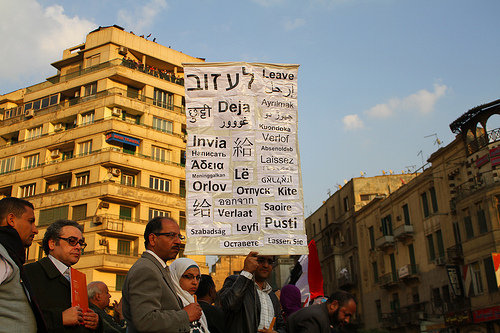For the past few years, much of the scholarly literature on Islamist movements has danced around the “participation/ moderation” idea:…
The future of Egyptian democracy

Few countries in the Middle East are as closely covered as Egypt—unsurprising, given its status as the most populous and historically influential Arab country. The aftermath of the Arab Spring has been a tumultuous ride for Egypt, beginning with the election of Muslim Brotherhood leader Mohamed Morsi in June 2012. The short-lived Morsi government did little to ease tensions along Egypt’s traditional fault lines—civilian and military, Islamist and secular, democratic and authoritarian—and ultimately culminated in a military coup d’état led by general Abdel Fattah el-Sisi in July 2013.
Since a military-backed caretaker regime was installed, Egypt has experienced the trial of Morsi; the systematic imprisonment of Brotherhood leadership; the unlawful and often brutal suppression of Brotherhood activists by state security forces; the designation of the organization as a terrorist group; and a draft constitutional prohibition on political parties “formed on the basis of religion, gender, race or geography.” Meanwhile, with the passage of a sweeping new protest law and the jailing of liberal activists, many see a state reconsolidating its power and control over civil society and the public sphere. The context of the proposed constitutional referendum and subsequent elections lends fresh urgency to questions about the possibility of accommodation or reconciliation between the military and the Brotherhood, the purported linkage between inclusion in democratic politics and ideological moderation, and the future of religious politics in the country more broadly.
We have invited scholars to discuss these and related issues, in order to shed some light on the complex situation unfolding in Egypt and to help illuminate potential paths forward. As part of a joint project between The Immanent Frame and Religion Dispatches made possible by the Henry Luce Foundation, Religion Dispatches contributing editor Austin Dacey has written a series posts on Egypt and secularism here.
Narratives of the Egyptian constitution
In The Myth of Religious Violence, William Cavanaugh argues that the assumption that religion is inherently authoritarian, divisive, and predisposed to irrational…
The future of political Islam, the Muslim Brotherhood, and Egyptian politics
Shortly after the late Omar Suleiman, the Hosni Mubarak era head of Egypt’s military intelligence, had been appointed vice president…
Not secularism vs. Islamism
Field Marshal Abdel Fattah el-Sisi is the new Nasser, according to many Egyptians. The image of the military strong man…
Three observations on religion, politics, and the Muslim Brotherhood
In the following essay I would like to offer three observations about the use of religion in politics in Egypt…
Searching for the church of Islam
Amid the conflict currently underway in Egypt—between state authorities led by the military-backed government and the Muslim Brotherhood and their…
Egypt and the elusiveness of shar’iyyah
Political legitimacy in the Arab world has often been derived from Islam. Both sharia (Islamic law) and shar’iyyah (legal, legality…
This is not Mubarak-lite: The new face of authoritarianism
Since the removal of Mohamed Morsi, Egypt’s first democratically elected leader, much of the discourse on the interim government’s handling…
Electoral legitimacy, not religious legitimacy
The ouster of Mohamed Morsi involved a dispute over legitimacy—what gave the Egyptian president the right to remain in power?…
The politics of divine intervention
What role do divine interventions play in Egypt’s current political climate? Is Abdel Fattah el-Sisi a Sufi? Is the Muslim…












